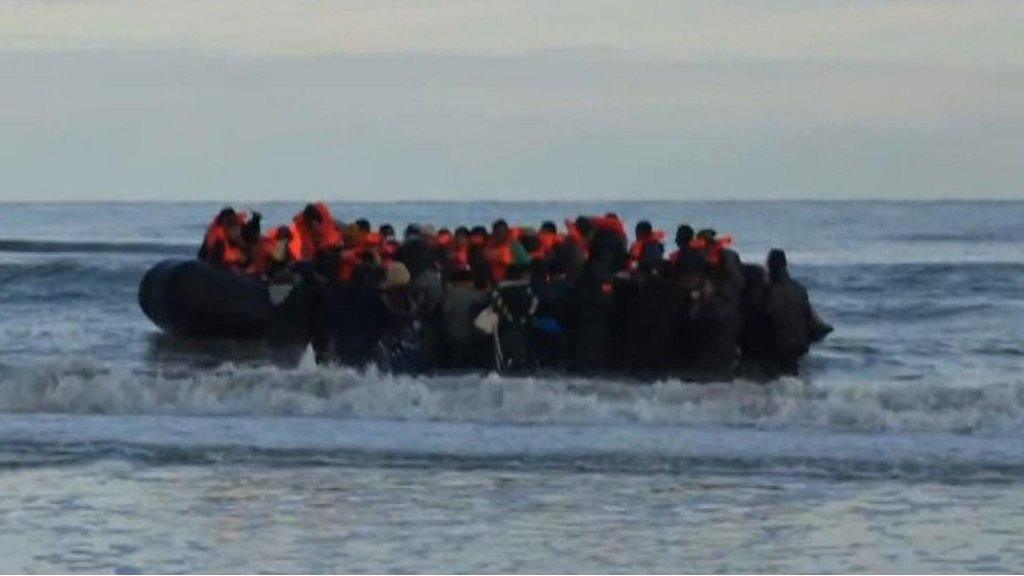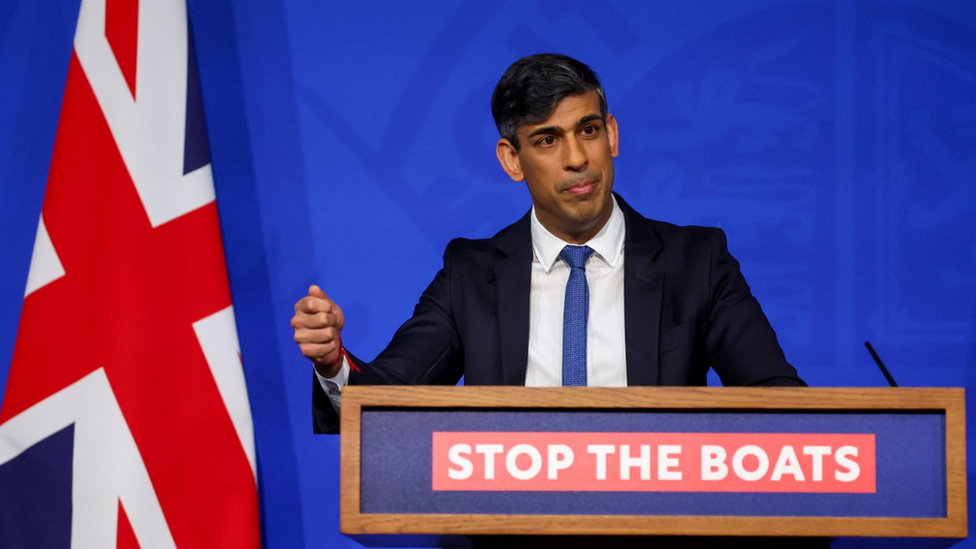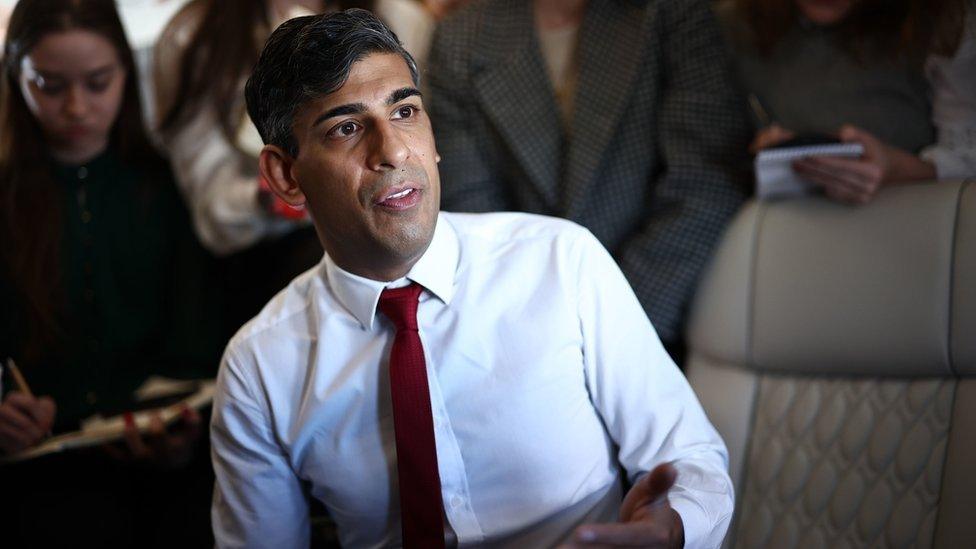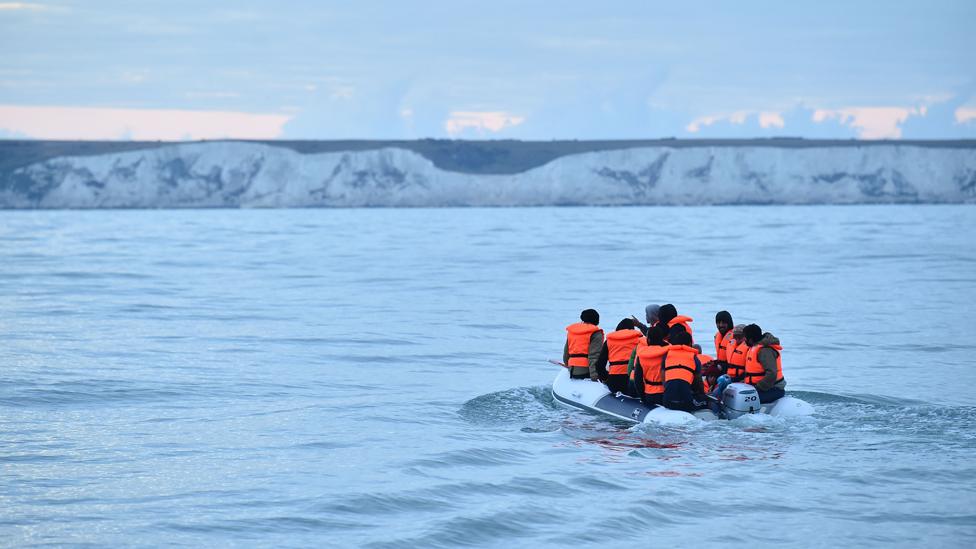Migrants cram onto small boat in Calais during BBC broadcast
- Published
Watch: Migrants cram into small boat as BBC films in Calais
Migrants crammed onto a small boat near Calais while we broadcast live, hours after the Rwanda bill passed.
The weather on Tuesday was perfect for the people smugglers. Blue skies and windless.
It was not long before a familiar black shape edged around the headland towards the beach we had chosen as a likely place for boats to launch.
An inflatable, roughly half-full of migrants wearing orange life-preservers.
A large French military or coastguard vessel tracked it across the bay, preventing it crossing to the UK.
But unusually it turned towards the shore and, from the dunes which line the coast here, a group of around 40 more migrants emerged and walked briskly towards it.
The police had been patrolling the beach and tried to stop them but most ignored the armed officers and started climbing onto the inflatable.
Others struggled to start a tiny outboard engine, and more worked to turn the boat and point it towards the UK.
We counted 67 people, some without life vests. Children were lifted and placed into the middle of the vessel. A man with a walking stick was turned away.
The French police made no attempt to stop it. Some officers turned to us, angry that we were there, suggesting we had known in advance what was going to happen.
We were questioned and our ID checked, as the migrants climbed aboard the boat in the shallows behind us.
It is possible our presence stopped them using knives to slash the boat, deflate it and potentially pitch the migrants into the water. This happens regularly.
This beach is walking distance from encampments near Gravelines and migrants try every night to hide in the dunes, avoid the police and run to the water's edge with inflatable boats.
They are aware of the UK government's new legislation and the possibility they might make it to the UK only to be sent to Rwanda to make an asylum claim, which could only result in them being given permission to live there, not Britain.
South Sudanese migrants have told the BBC that Rwanda is so close to their home country they could have far more easily travelled there had they wanted to.
But the UK is the draw. Family links, the language.
At an established group of camps, South Sudanese and Somali migrants asked a series of questions about how the government's Rwanda policy will work.
Many did not appreciate that if they were sent to the country to make an asylum application they would not be able to return to the UK.
One Somali man told me he was intent on getting out of mainland Europe without giving his fingerprints because he might be told he should have claimed asylum at that point, rather than in the UK.
Another said that he would take his own life if he made it across the Channel and then the government tried to remove him to Rwanda.
But there were glances and raised eyebrows as we explained the new legal situation they faced. The new law may have some effect, even this close to the Channel.
But none of them said they would be dissuaded. They had travelled too far, many for months through northern Africa, Turkey and Europe.
- Published23 April 2024

- Published13 June 2024

- Published23 April 2024

